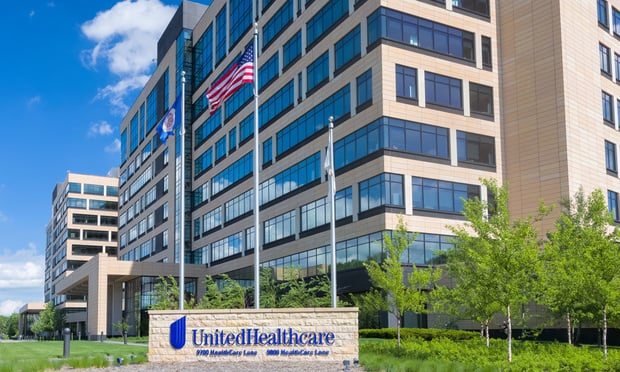 Although thepicture for Sanders himself was by no means as rosy as his devoteeshoped, insurers may not want to get their hopes up just yet.(Photo: Shutterstock)
Although thepicture for Sanders himself was by no means as rosy as his devoteeshoped, insurers may not want to get their hopes up just yet.(Photo: Shutterstock)
Americans may have been "feeling the Bern" in the leadup toSuper Tuesday, but the polls show that the excitement of Sen.Bernie Sanders's supporters may be cooling. While Bernie took homenearly the entire state of California, former Vice President Joe Bidencame away the winner.
|Although the picture for Sanders himself was by no means as rosyas his devotees hoped, insurers had better not get their hopes upjust yet at the chance to avoid some form of Medicare for All. In fact, according to aCommon Dreams report, "majorities in every state with exitpolling data available agreed on at least one deeply consequentialpolicy aspiration: replacing private health insurance with agovernment-run plan that covers everyone."
|Related: Democratic candidates' health care attacks heatup
|Super Tuesday exit polls conducted by Edison Research, which hasconducted exit polls in all but two states—Arkansas andUtah—indicated that although voters may not be united in whichcandidate to support, they're pretty well united with majoritysupport on something else: private insurance has to go, and thegovernment needs to step in.
|According to Kaiser Family Foundation's tracking polls, healthcare continues to be the top issue among Democratic voters. But howdo candidate preferences reflect reform preferences? KFF has puttogether an interactive map parsing health care opinions ineach state. In Colorado, for example, where Bernie won 36.2 percentof the primary votes, 63 percent of voters would favor asingle-payer system, and 87 percent would favor a public option.But that's not too out of line with voter preferences in SouthCarolina, which Biden won with 48.4 percent of delegate votes.There, 66 percent favor a single-payer system, and 87 percentsupport a public option.
|Considering Sanders's clean sweep of voting in the first fourstates, and that the lowest margin of support for a M4A system onSuper Tuesday was 50-45 percent in Massachusetts (in Vermont, itwas 73 percent to 23 percent), most politicians may be asking thewrong questions or delivering the wrong answers in their efforts towin voters.
|What that means for Sanders' chances—and for his plan forMedicare for All—remains to be seen, since although Biden took morestates—he won nine, including Texas, while Sanders won just four(Bloomberg, by the way, who has since dropped out, took AmericanSamoa)—Sanders, with 382 delegates, trails Biden's 453 delegates byonly 71.
|There are still more than half the states to go. And consideringthat to win the nomination unchallenged at the national convention,a candidate needs 1,991 delegates altogether, it'll be a whilebefore Democratic voters see whether the state ofCalifornia—considered all-important in the race to the WhiteHouse—will be enough to help Sanders, and Medicare for All, surviveuntil the convention, whether other potential candidates will haveto come around to Bernie Sanders' (and Elizabeth Warren's) pointsof view on Medicare for All, or whether Biden's comeback is trulyas extraordinary as it currently appears.
|Read more:
Complete your profile to continue reading and get FREE access to BenefitsPRO, part of your ALM digital membership.
Your access to unlimited BenefitsPRO content isn’t changing.
Once you are an ALM digital member, you’ll receive:
- Critical BenefitsPRO information including cutting edge post-reform success strategies, access to educational webcasts and videos, resources from industry leaders, and informative Newsletters.
- Exclusive discounts on ALM, BenefitsPRO magazine and BenefitsPRO.com events
- Access to other award-winning ALM websites including ThinkAdvisor.com and Law.com
Already have an account? Sign In
© 2024 ALM Global, LLC, All Rights Reserved. Request academic re-use from www.copyright.com. All other uses, submit a request to [email protected]. For more information visit Asset & Logo Licensing.








